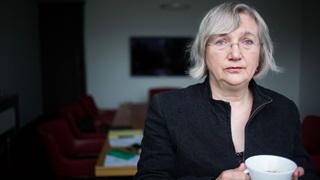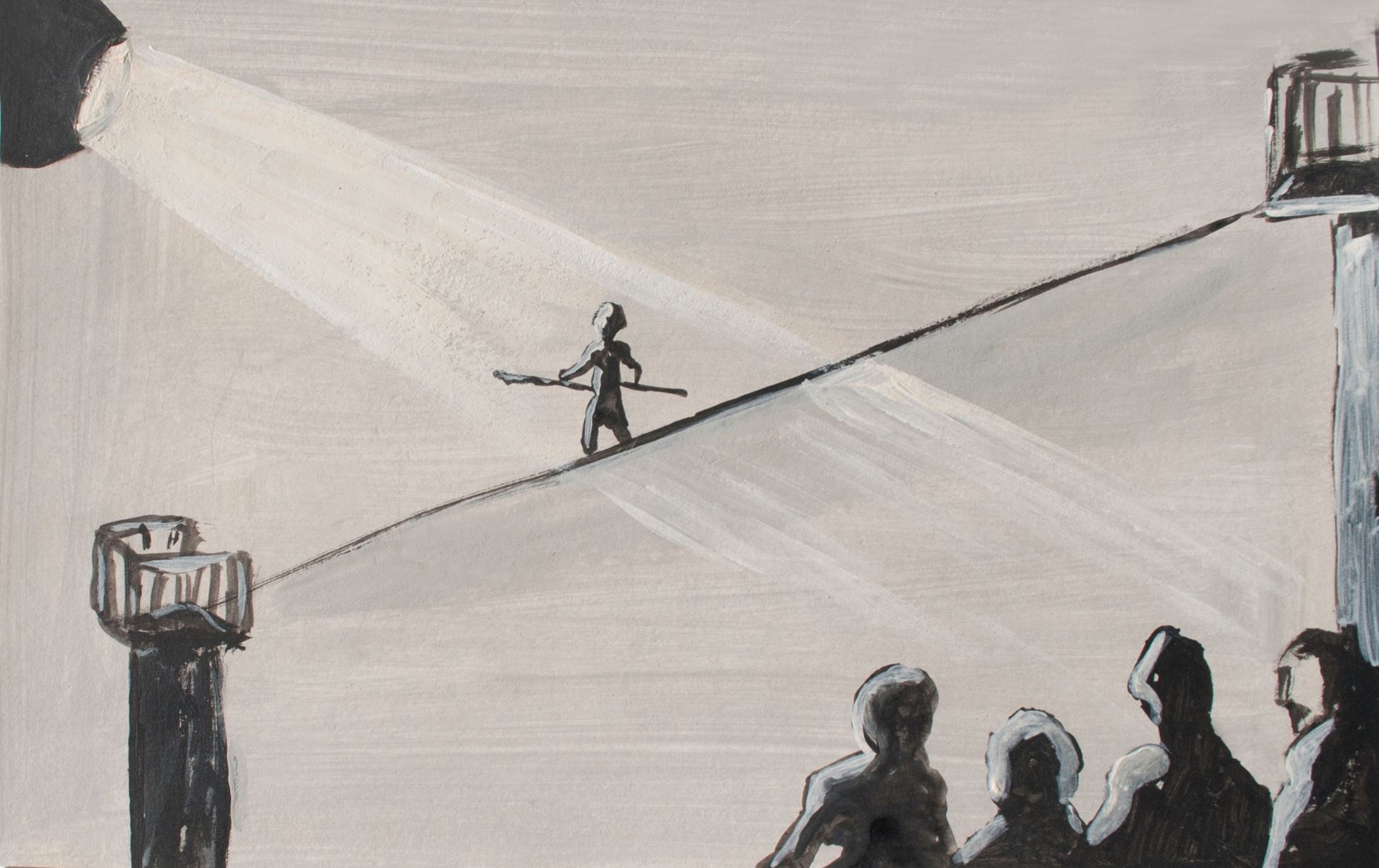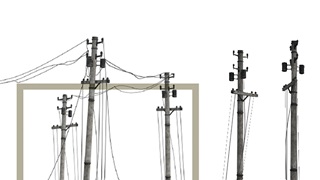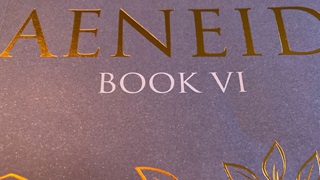
The guide
Nicola Liu lays out the map of her life | Issue 21 | 2022


A friend moved back to England this summer, after living abroad for many years. He sent a picture of himself and his three-year-old son from the top of Parliament Hill on Hampstead Heath, looking out over the London skyline to St Paul’s Cathedral and the Palace of Westminster, with these accompanying words from The Whitsun Weddings by Philip Larkin:
I thought of London spread out in the sun,
Its postal districts packed like squares of wheat:
There we were aimed.
We reach for poetry at important moments in our lives. Even if we’re not keen readers, even if we’re not poets, that curious power which poetry has to unite beauty with truth seems to make it a natural language with which to express ourselves on those occasions. It helps us to frame our feelings, to make sense of them, to elevate them even. And, by relating the personal to the universal, it stretches a tightrope of connection across human experience. Poetry provides us with an opportunity both to nourish our solipsism and escape it at the same time.
What my friend saw, and what I saw, in those lines, was how starkly accurate Larkin’s vision of London in the sunshine remains, nearly sixty years after the poem was first published. That alone seems magnificent. But, beyond that, I also saw my friend’s excitement, his determination, his hopes for the new chapter he is embarking upon and all that London might offer to him and his little boy. They are feelings I can relate to, probably we all can; we have all at some stage or another reinvented ourselves, in ways big or small. Those last four monosyllabic words (quite ordinary words, really, not “poetic” in themselves you might think, not hard to understand) leapt out of the four walls of their poem, and took on new, autonomous significance. In poetry, as in life, nothing is fixed. “There are no facts, only interpretations”, Nietzsche wrote.
There’s an interesting tension there. On the one hand, art seems to be concerned with verisimilitude, holding “as ‘twere the mirror up to nature” as Hamlet says. On the other, it is endlessly subjective. Another Larkin poem, High Windows, takes up that metaphor of poetry as glass, both transparent and reflective:
Rather than words comes the thought of high windows:
The sun-comprehending glass,
“Poets are interested in glass,” the poet and academic Patrick McGuinness said. “The real glass in Larkin…is the glass that allows almost uninterrupted sight, that allows you to see out, far. But it also allows you to see yourself, somehow.”
I have always been interested in the collaborative nature of drama: the alchemical reaction and interaction between script, director, actors, staging, costume. Poetry is less obviously communal, except perhaps when you consider the “public” role that it plays in our lives: the lines that we invoke at marriage celebrations, at significant birthdays or anniversaries, at funerals, or when we are in love. I think the words we quote then are the words which have, for us, special, personal meaning, but which we also expect, assume even, will speak to some universal feeling.
As I reflect on the last twelve years of this magazine, and all the different poets I have written about, and also thinking about poetry as a collaborative experience, I have to end by quoting my favourite poet of all. When I was little, my father and I used to go for long walks and make up poems together as we went. High art, it was not. My father also did most of the creative work; my role was mainly to commit the output to memory. Such as this:
"There was a young girl named Lucretia,
Who lived in a mansion in Esher.
She said: “I eat brill,
Till I’m feeling quite ill,
And then I take Milk of Magnesia."

Natalia Mushinska, Alexandra Howe and Tom Valentine, filing reports from Moscow, New York and Maputo | Issue 15 | 2019

Alexandra Howe's bookshelf includes Pride and Prejudice, Pearl and Plainsong | Issue 15 | 2019
© Norton Rose Fulbright LLP 2025